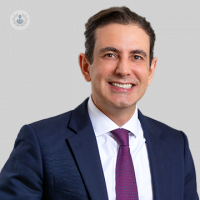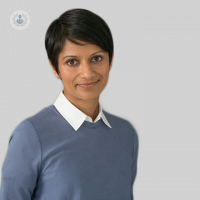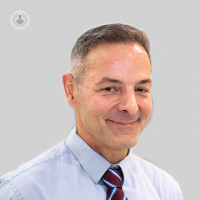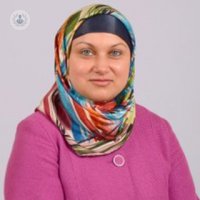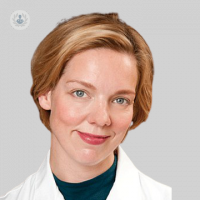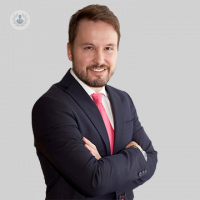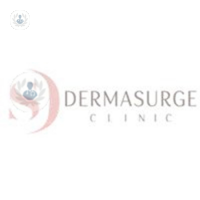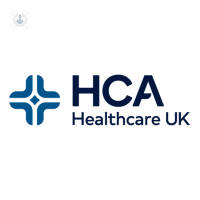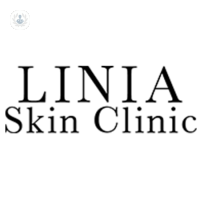What is rosacea?
Rosacea is a chronic skin condition that causes a facial rash, which may include red blotches, telangiectasia (spider veins), pimples or spots, and possibly a burning sensation on the skin of the cheeks, nose, chin and forehead. It is a long-term condition that appears more frequently in middle-aged people and can vary in intensity.

What are the symptoms of rosacea?
Rosacea can manifest as several symptoms, including:
- Redness of the face (often giving the appearance of blushing)
- Bumps or pimples on the skin
- Patches of rough, dry skin
- Swelling, particularly around the nose and eyes (a bulbous red nose is a common indicator of severe rosacea)
- A burning or stinging sensation
- Telangiectasia (spider veins – thin and reddish lines form under the skin because the blood vessels under the skin are enlarged.
- Eye problems, including itching, dryness, swelling, light-sensitivity, bloodshot or watery appearance, etc.
Different patients may experience a different selection of symptoms, the most common being the unexplained redness of the face, which often bears a resemblance to acne (although the two are distinct conditions).
Rosacea tends to flare up in cycles, with patients suffering symptoms for a period of weeks or months, before the symptoms disappear for a similar period.
What are the causes of rosacea?
The cause of rosacea is unknown but there are several factors that are thought to contribute to or worsen it. For example excessive consumption of alcohol, caffeine or hot and spicy food is thought to trigger episodes, as can intense physical activity. Other factors include:
- Age – rosacea occurs most commonly in people between 30 and 50 years of age.
- Skin type – fair-skinned people seem to be more susceptible (especially those with blond hair and blue eyes).
- Genetics – family history of the condition means you are more likely to suffer from rosacea. It it also more common in people of Celtic and Scandinavian ancestry.
- Hormonal changes (for example, the menopause)
- Sudden changes in temperature
- Exposure to sun or wind
- Stress
- Some medications
- Certain bacteria like helicobacter pylori
Can rosacea be prevented?
Rosacea isn't something that can be prevented, but you can still avoid severe episodes by starting treatment as soon as possible when symptoms flare up, and keeping your skin hydrated. Other tips include:
- identifying and avoiding the things that cause a flare-up;
- avoiding products that irritate the skin, and;
- generally taking care of your skin, by using sun cream;
- make-up suited to your skin type, and;
- gentle shampoos and gels to avoid further irritation.
What is the treatment for rosacea?
Although there is no cure, the symptoms can be managed. Rosacea can triggered by different things in different patients, so treatment differs accordingly. The doctor may prescribe drugs, such as:
- antibiotics and tetracycline derivatives;
- topical preparations, or;
- laser or intense pulsed light therapies.
Rosacea
What is rosacea?
Rosacea is a chronic skin condition that causes a facial rash, which may include red blotches, telangiectasia (spider veins), pimples or spots, and possibly a burning sensation on the skin of the cheeks, nose, chin and forehead. It is a long-term condition that appears more frequently in middle-aged people and can vary in intensity.

What are the symptoms of rosacea?
Rosacea can manifest as several symptoms, including:
- Redness of the face (often giving the appearance of blushing)
- Bumps or pimples on the skin
- Patches of rough, dry skin
- Swelling, particularly around the nose and eyes (a bulbous red nose is a common indicator of severe rosacea)
- A burning or stinging sensation
- Telangiectasia (spider veins – thin and reddish lines form under the skin because the blood vessels under the skin are enlarged.
- Eye problems, including itching, dryness, swelling, light-sensitivity, bloodshot or watery appearance, etc.
Different patients may experience a different selection of symptoms, the most common being the unexplained redness of the face, which often bears a resemblance to acne (although the two are distinct conditions).
Rosacea tends to flare up in cycles, with patients suffering symptoms for a period of weeks or months, before the symptoms disappear for a similar period.
What are the causes of rosacea?
The cause of rosacea is unknown but there are several factors that are thought to contribute to or worsen it. For example excessive consumption of alcohol, caffeine or hot and spicy food is thought to trigger episodes, as can intense physical activity. Other factors include:
- Age – rosacea occurs most commonly in people between 30 and 50 years of age.
- Skin type – fair-skinned people seem to be more susceptible (especially those with blond hair and blue eyes).
- Genetics – family history of the condition means you are more likely to suffer from rosacea. It it also more common in people of Celtic and Scandinavian ancestry.
- Hormonal changes (for example, the menopause)
- Sudden changes in temperature
- Exposure to sun or wind
- Stress
- Some medications
- Certain bacteria like helicobacter pylori
Can rosacea be prevented?
Rosacea isn't something that can be prevented, but you can still avoid severe episodes by starting treatment as soon as possible when symptoms flare up, and keeping your skin hydrated. Other tips include:
- identifying and avoiding the things that cause a flare-up;
- avoiding products that irritate the skin, and;
- generally taking care of your skin, by using sun cream;
- make-up suited to your skin type, and;
- gentle shampoos and gels to avoid further irritation.
What is the treatment for rosacea?
Although there is no cure, the symptoms can be managed. Rosacea can triggered by different things in different patients, so treatment differs accordingly. The doctor may prescribe drugs, such as:
- antibiotics and tetracycline derivatives;
- topical preparations, or;
- laser or intense pulsed light therapies.
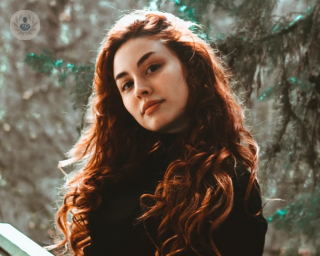

Can rosacea ever go away on its own?
By Dr Ariel Haus
2024-12-14
Rosacea can affect self-confidence, in this latest article with a leading dermatologist, Dr Ariel Haus, we found out what the causes can be and what the triggers are. We found out what types of treatment are available, whether rosacea can ever be cured and what happens if rosacea is left untreated. See more


Facial redness - is it rosacea?
By Dr Nisith Sheth
2024-12-14
Facial flushing can be embarrassing - a tell-tale sign of anger, stress, anxiety, or indeed embarrassment itself. But for some people, redness in the face can be more than that. Dr Nisith Sheth, leading London dermatologist, explains more about the skin condition rosacea. See more
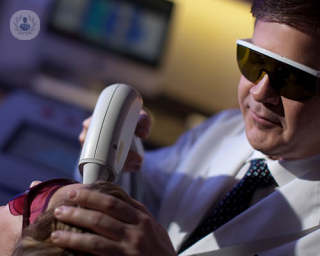
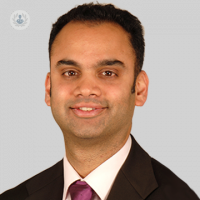
How are lasers used in dermatology?
By Dr Raj Mallipeddi
2024-12-14
Lasers are now widely used across many medical specialties, to successfully and quickly treat a wide range of medical conditions. Dr Raj Mallipeddi, leading consultant dermatologist and dermatological surgeon, explains how lasers can help dermatologists to treat a variety of problems. See more
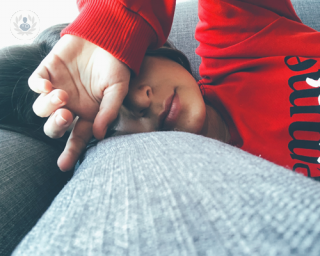

In focus: Rosacea and Laser Pigmentation treatment
By Dr Jibu Varghese
2024-12-14
Rosacea and pigmentation issues can be challenging to manage, but advancements in dermatological treatments offer effective solutions. Below, leading consultant dermatologist Dr Jibu Varghese discusses the treatment options available for these conditions, focusing on laser treatments and their benefits. See more
Experts in Rosacea
-
Dr Gayathri Perera
DermatologyExpert in:
- Skin cancer
- Acne
- Rosacea
- Paediatric dermatology
- Psoriasis
- Autoimmune diseases
-
-
-
Dr Justine Hextall
DermatologyExpert in:
- Skin cancer
- Acne
- Rosacea
- Anti-ageing treatments
- Paediatric dermatology
- Skin cancer on face
-
- See all

Dermasurge Clinic
Dermasurge Clinic
121 Harley St
No existe teléfono en el centro.
By using the telephone number provided by TOP DOCTORS, you automatically agree to let us use your phone number for statistical and commercial purposes. For further information, read our Privacy Policy
Top Doctors

The Harborne Hospital - part of HCA Healthcare
The Harborne Hospital - part of HCA Healthcare
Mindelsohn Way, B15 2FQ
No existe teléfono en el centro.
By using the telephone number provided by TOP DOCTORS, you automatically agree to let us use your phone number for statistical and commercial purposes. For further information, read our Privacy Policy
Top Doctors

LINIA Skin Clinic
LINIA Skin Clinic
64 Harley St, London
No existe teléfono en el centro.
By using the telephone number provided by TOP DOCTORS, you automatically agree to let us use your phone number for statistical and commercial purposes. For further information, read our Privacy Policy
Top Doctors
-
Dermasurge Clinic
121 Harley St, Central LondonExpert in:
- Acne
- Anti-aging
- Skin Cancer
- Plastic surgery, reconstructive and aesthetics
- Laser Hair Removal
- Clinical Dermatology
-
The Harborne Hospital - part of HCA Healthcare
Mindelsohn Way, B15 2FQ, BirminghamExpert in:
- Digestive
- Cancer
- Orthopaedic surgery
- Thoracic Surgery
- Diagnostic Imaging
- Obstetrics and Gynaecology
-
LINIA Skin Clinic
64 Harley St, London, Central LondonExpert in:
- Acne
- Cosmetic Dermatology
- Skin lesions
- Hair loss
- Dermal fillers
- See all
- Most viewed diseases, medical tests, and treatments
- Facial feminisation surgery
- Hormone therapy
- Migraine
- Autoimmune diseases
- Nutrition
- Weight loss injections
- Endermologie
- Polynucleotides
- Nipple discharge
- Abdominal pain
